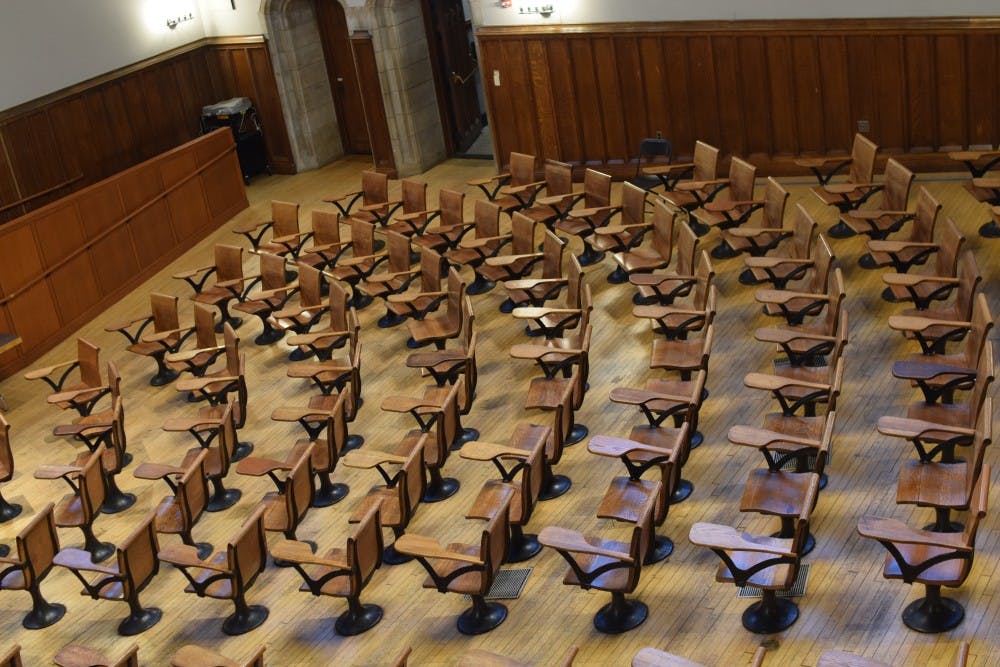Nearly two weeks have passed since University students began taking online courses on Zoom.
Though some students believe that Zoom allows classes to continue as normal, a number have noted that not all classes are equally suited to moving online, and not all students — depending on their time zone, internet access, and living situation — can participate easily.
Because they rely upon in-person access to specialized equipment, spaces, and instruction, arts classes have been some of the hardest-hit by the move to remote learning.
Sergio De ludicibus ’20 said that while all of his classes have experienced some difficulties in the transition to using Zoom, he is not sure how his chamber music class will move forward.
The course, MPP 213: Chamber Music, is intended to teach students to perform as an ensemble, but lag, echoing, and feedback make it difficult to play as a group over Zoom.
“Music requires synchronicity down to the millisecond. No matter how good the software is, we can’t play together,” De ludicibus explained.
Initially, his classmates had considered recording each of their parts individually, and then joining them together online. However, it quickly became apparent that many students did not have access to their instruments — much less recording equipment — at home.
For other students, the transition has been relatively smooth.
“I’ve been very impressed with Zoom. I think the software itself is very functional,” said Chiara Salvati ’22.
Salvati added that while her classes are less interactive and harder to engage with, she still feels like she is learning the necessary material. However, she is worried about the challenge presented by differences in time zone.
A student in one of her classes recently returned home to Taiwan, a 12-hour time difference from New Jersey, making it difficult to attend classes. Instead of rescheduling class, the professor decided to record the seminars and spend an extra hour conducting individual discussion with the student.
“I thought it was a thoughtful way of handling the situation,” Salvati said.

However, while mostly satisfied with how her classes have been conducted over Zoom, Salvati added that being at home does make it more difficult to focus.
“You can’t lock yourself in the library,” she said.
Margarita Orlova ’20 echoed the sentiment, adding that following and engaging with online lectures requires a lot more self-discipline than attending in person.
“Some lectures are being recorded, but I’ve noticed I prefer the live ones. Recorded lectures give you more freedom, but with that freedom, you need to have better time-management skills,” she explained.
Orlova added that while many of her more discussion-based classes have suffered from the transition online, her biochemistry precepts have become easier to follow. While she used to struggle to see the board from her seat, she’s found that the screen-sharing function on Zoom allows her to see important visuals and diagrams.
Ultimately, however, online classes only work if students can get online. Though the University has allowed students without reliable internet connections to apply for funding to purchase hotspots, technical issues have still arisen.
“Classes have not been going that smoothly because of my WiFi,” Grace Kim ’23 wrote in a message to The Daily Princetonian. “There were many times where the call would lag so I can’t hear what the professor/preceptor/classmates are saying.”
Kim added that due to her poor internet connection, she has found herself kicked out of Zoom meetings whenever she tries to attend a class. While she is working with her professors and preceptors to find a solution, she still worries about what she’s missing.
“I can’t really focus during class because I’m stressed about the whole internet situation,” she said.








